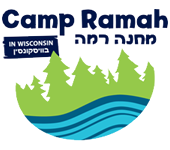The text of Leviticus, though it ostensibly speaks to a nation of newly redeemed slaves mere weeks or months after their liberation from Egypt, seems to be speaking of a well-established, divinely ordained holiday cycle. There is no mention of any human agency in these days. And though the Torah itself does depict a real-time, first Passover (called Pesach Mitzrayim – the Egyptian Passover, by the Rabbis), there is no parallel description of celebrations of Sukkot, Shavuot, Rosh HaShanah, or Yom Kippur from the Torah. The historical events we now associate with the different holidays are only realized by the Rabbinic imagination a millennium or more after the Torah’s narrative takes place. These are truly “Seasons of God,” a divinely ordained ordering of the year to recognize the eternal natural cycles of the year.
Less than seventy years after the final liberation of Dachau, Auschwitz, and the rest of the camps by the Allied Forces, our modern High Holiday days are too new, their historical impetuses too fresh, to be similarly categorized. Even more so, the human fingerprints are still too apparent for these commemorations to have crystallized into the powerful symbolism and ritual that makes religion such an effective force in our lives. And so, our communities, in Israel, North America, and around the world, struggle to figure out what, exactly, we should do to give honor to the mix of pain, relief, and joy that characterizes this week on our calendar. Many, including myself, have lamented the lack of systemic efforts to ritualize, and movements to observe, these crucial days to our identity. We are left with a fundamental question: How can we turn these “Seasons of Man,” the horrific and miraculous events perpetrated and experienced by human beings many of us know (or, alas, knew) personally, into modern versions of mo’adei adonai?
Our experiences at Ramah over the summer, I think, are instructive here. One of the most magical aspects of camp is their reaction to the implicit demand we place on our campers to create and sustain their own Jewish community. Where else do incoming 7th graders lead practically every part of a daily minyan for two months? Where else do our children set and clear their tables, fold their clothing onto shelves, and sweep their cabin and porch? Where else do they experience the transformative impact – on their identities, self esteem, and on us, the adults who know and love them – of developing and sustaining a supportive community of their peers?
At camp our children play “grown up” as Jews and human beings. In doing so, celebrations of Shabbat, the wisdom of the Torah, and the mechanics and spirituality of daily prayer are shifted from being distant and removed into the eager hands of a new generation. God’s work, as it were, becomes their work, human to its core. And in doing so, they refresh for a new generation what it means to be Jewish.
Similarly, I suggest, the work of transforming the newest guests to our feast of Jewish holidays into permanent and revered ones, is to do the same work: to try, to make an effort, and to know that our ultimate success at transforming these days into recognitions of the Divine actually lies in our own fragile humanity. It is our job to keep these commemorations alive, to allow them to grow, to provide them the emotional and physical fuel they need to last long enough for different generations, removed by time, to interpret them anew and shape them into the emphatic testaments to human tragedy and bravery we want them to be.
Shabbat Shalom.






